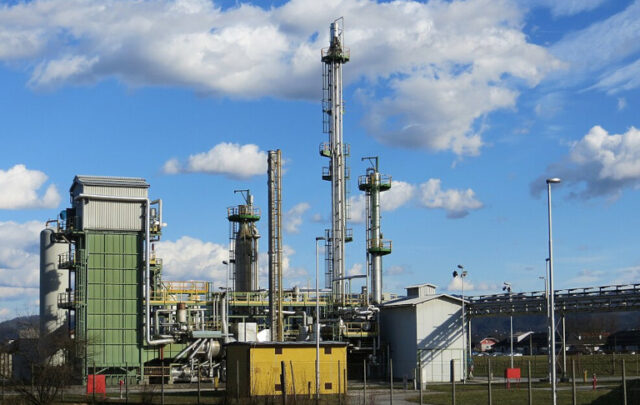WHILE THE Bush administration was working to stall the global warming talks in Buenos Aires this month, US-based companies have been taking the lead in developing and utilizing technologies to reduce greenhouse gases.
American Electric Power and Cinergy, two of the nation’s biggest carbon emitters, are making investments in clean-coal technologies and have acknowledged the need for congressional action on national carbon controls. Meanwhile, other companies such as Cummins Engine and General Electric are already seeing a windfall from clean energy technologies. These companies form the vanguard of a new economic world order.
By reducing greenhouse emissions and ratcheting up new climate-friendly technologies, US companies can create jobs and launch an era of economic growth akin to the start-up phase of the Internet. If CEOs fail to realize these opportunities, their companies will soon fall far behind overseas competitors already honing their strategies to compete in a carbon-constrained world.
On New Year’s Day, thousands of power plants, factories, and other facilities throughout Europe will begin operating under new greenhouse gas quotas. Other non-European countries are also developing carbon reduction plans as they move to comply with the Kyoto Protocol, which begins Feb. 16. The protocol, which the United States refused to ratify, requires most of the world’s developed countries — including Canada, Japan, Russia, and all of the European Union — to reduce their greenhouse gas emissions by 5 percent from 1990 levels by 2012.
Global companies in the United States have no choice but to join the carbon-reducing movement. Whether it’s GM cars in China or Alcoa aluminum in Europe, the carbon footprint from making and using their products is an increasingly important factor for US businesses competing overseas. Alcoa has already announced plans to upgrade three of its smelters in Spain to comply with the new rules.
The carbon-constrained global economy is also opening new opportunities — markets that some US companies are already seizing on for new revenues. Cummins Engine is selling thousands of compressed natural gas bus engines to Beijing, which is pushing to have its entire 118,000 bus fleet operating on clean energy by the 2008 Summer Olympics. General Electric has locked its sights on the burgeoning wind power market, which it predicts will grow from 31,000 megawatts of installed capacity today to more than 83,000 megawatts worldwide by 2007.
But most US companies still lag far behind their worldwide competitors in facing the challenges posed by global warming. Too many — including leading electricity providers, oil and gas producers, and automakers — are acting as if global warming and carbon controls are fiction.
Meanwhile, the financial risks from global warming are growing each day. So serious is the issue that the world’s second largest reinsurer, Swiss Re, is telling its corporate clients to come up with strategies for handling global warming or risk losing their liability coverage.
Tackling this challenge falls not just on companies, but on investors too. Here are three strategies they should be pursuing: First, investors must understand the financial risks for companies in which they own shares and companies must do a better job of analyzing and describing those risks in the public reports they file with the Securities and Exchange Commission.
If companies don’t do this, investors should demand it. A growing number of the nation’s largest pension funds are filing shareholder resolutions requesting that companies disclose their risks from climate change and how they plan to avert them. Several of these resolutions received record-high voting support this year –in the case of oil and gas companies, as high as 37 percent.
Second, investment managers need to more accurately assess climate risk exposure in evaluating companies and industry sectors. More robust research practices are also needed to better analyze and model how businesses and sectors are threatened by various global warming scenarios, whether from weather impacts or regulatory changes.
Third, investors must channel their investment capital to take advantage of new clean technology opportunities. As more states and countries move to adopt carbon controls — whether on vehicles in California or China, or on power plants in the Northeast — markets for hybrid vehicles, clean-coal processes, and other clean technologies will only magnify. Investors should take advantage by investing in companies and portfolios that are well positioned.
Investors have a fiduciary duty to make sure companies are paying attention to global warming. Until a larger number of investment managers weigh in by demanding more accountability and disclosure from companies, climate risk will continue to fester as a giant hidden liability with potentially dire consequences for American companies, their shareholders, and the US economy.
Is the United States going to lead the technological innovation and resulting job growth as it did with the Internet? Or is it going to lag behind as Toyota and other foreign competitors develop and dominate clean technology markets? The efforts of a small number of companies suggest the enormous potential available. The challenge is now before CEOs to lead their companies in realizing the opportunities posed by a carbon-constrained global economy.
Timothy E. Wirth is president of the UN Foundation and a former US senator from Colorado. Mindy S. Lubber is executive director of Ceres, a Boston-based national coalition that runs the Investor Network on Climate Risk.





